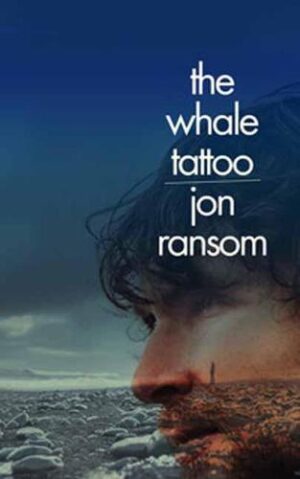Death follows Joe Gunner wherever he goes. He knows this because the whale told him so. Washed up on a Norfolk beach on ‘a halo of dirty blood,’ its terrible majesty conveys a personal message. Joe must return to his childhood fishing community, where fisherman and ex-lover, Tim Fysh, still lives and memories wait to be dredged from the shifting tidal waters. A stunning debut, The Whale Tattoo by Jon Ransom gives us a vivid portrait of queer, working class life, in a community riven by repressive conformity and familial trauma.
Fysh, as Joe calls him, has always been a magnetic character, his red hair ‘like a hot match…all kinds of trouble in his eyes.’ Working in an atmosphere of hot diesel and hard sweaty graft, he exudes a troubled machismo. Being gay is not an option in this homophobic, ossified environment, and Joe had ended their relationship when Fysh chose to marry a local girl and follow the ‘road laid out before him.’ Now the whale has spoken, and Joe has returned.
In a narrative that ebbs and flows between past and present, we begin to understand why Joe is haunted by death. Returning to his childhood home by the river, the water whispers to his damaged psyche.
‘It sounds like a box of wasps. Swooshing, stirring, spinning lies until I can’t stand it.’
It taunts him about Fysh, hisses secrets of Joe’s family, and beloved sister, Birdee, who drowned two years ago. This river has borne witness to his fraught upbringing and the repercussions of life with a brutal father.
In one spellbinding scene, Joe recollects standing at the kitchen window with Birdee, watching his mother chain-smoking outside, the smoke ‘metallic in the morning light, harassing her.’ She’s awaiting delivery of a brand new suitcase, tells Joe to hide it from his father.
Mere days later, to Joe’s bewilderment, she hurls the case into the river.
‘And we watch the water. Her teal suitcase drifting, meant for all three of us.’
But the tide doesn’t want it, and the case washes back up on the bank. This sense of futility surfaces throughout the novel, both in family events and Joe’s relationship with Fysh, which he reignites, despite knowing that they can never be openly together.
The bleakness is by no means all-pervasive. Ransom’s writing is visceral and bold, filled with lusty sex and explicit language. Scenes of brutality are offset by an affecting sensitivity, the image of Joe’s dead whale, ‘bruise-coloured in beach light,’ his perpetual ache for a man who will never be his. Joe wants the change that his lover will never undertake. He wants to live freely, to escape the prospect of becoming just another angry young man.
As the river continues to mock him, Joe is faced with both revelation and ruin. Love versus hate, forgiveness versus revenge. A brilliantly evocative and unfaltering debut.
The Whale Tattoo by Jon Ransom is published by Muswell Press, 240 pages.
If you enjoyed Edouard Louis’ The End of Eddy, you might like this.





